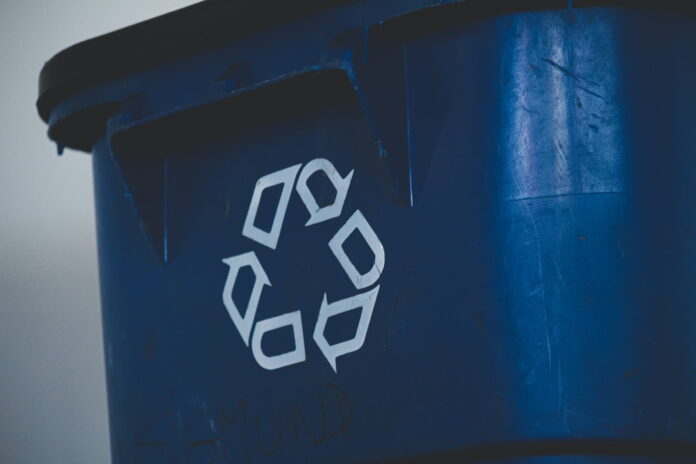The concept of Zero Waste is a philosophy that encourages the redesign of resource life cycles so that all products are reused, and no trash is sent to landfills or incinerators. In the context of an office environment, this means creating a culture where resources are valued, and waste is seen not as an inevitable byproduct but as a design flaw.
The benefits of adopting a Zero Waste approach in the office are manifold. It can lead to significant cost savings by reducing the need for waste disposal and purchasing new materials. Environmentally, it contributes to the reduction of pollution and the conservation of natural resources. Socially, it can enhance the company’s image, attract eco-conscious employees, and set a positive example for other businesses.
Conducting a Waste Audit: The First Step Towards a Zero Waste Office
The journey to a Zero Waste office begins with understanding the current waste stream. Conducting a waste audit is a critical first step that involves collecting, sorting, and analyzing the waste produced in the office. This process helps identify the most significant sources of waste and opportunities for reduction. By quantifying the types and amounts of waste generated, companies can set realistic goals and track progress over time.
A waste audit should be a collaborative effort, involving employees from different departments to ensure a comprehensive understanding of waste practices throughout the organization. The insights gained from a waste audit can inform the development of targeted strategies to minimize waste production.
Strategies for Minimizing Paper Waste: From Digitalization to Responsible Printing
Paper waste is a significant issue in many offices, but there are numerous strategies to combat it. Digitalization is at the forefront of these strategies, with companies transitioning to paperless systems where documents are created, shared, and stored electronically. This not only reduces the need for physical paper but also enhances efficiency and accessibility.
When printing is necessary, offices can adopt responsible printing practices such as using both sides of the paper, setting printers to eco-friendly settings, and using recycled paper. Additionally, implementing a policy to review documents digitally before printing can prevent unnecessary waste. By prioritizing digital solutions and mindful printing, offices can make substantial strides in reducing their paper waste.
Sustainable Procurement: Choosing Eco-Friendly Office Supplies and Equipment
Sustainable procurement is a critical component of a Zero Waste office. It involves selecting office supplies and equipment that are eco-friendly, durable, and, where possible, made from recycled materials. Companies should look for products with minimal packaging, or packaging that can be easily recycled or composted. When purchasing electronics, energy efficiency and the manufacturer’s commitment to take-back programs should be considered.
By choosing suppliers that prioritize sustainability, offices can not only reduce their environmental impact but also influence the market to develop greener products. Sustainable procurement policies should be transparent and regularly reviewed to ensure they align with the latest environmental standards and innovations.
Implementing Office Recycling and Composting Programs: A Guide to Best Practices
Recycling and composting are essential elements of a Zero Waste office. To implement effective programs, offices should first ensure that they have a clear understanding of what materials are recyclable or compostable in their area. Clear signage and convenient placement of recycling and compost bins are crucial for encouraging proper use.
Education plays a significant role in the success of these programs; employees must be informed about what can be recycled or composted and why it matters. Regular feedback and updates on the program’s progress can help maintain engagement. For composting, offices can start with simple measures like collecting coffee grounds and food scraps from the kitchen, gradually expanding as the program gains traction.
Engaging Employees in Zero Waste Initiatives: Education, Incentives, and Building a Green Culture
The success of Zero Waste initiatives heavily relies on employee engagement. Education is the foundation of this engagement, with regular workshops, newsletters, and presentations to keep staff informed about Zero Waste principles and practices. Incentives can motivate employees to participate actively, whether through recognition programs, competitions, or tangible rewards for waste-reducing behaviors.
Building a green culture within the office is about fostering a community that values sustainability and feels responsible for the environmental impact of their actions. Encouraging employee-led green teams or sustainability committees can empower individuals to take ownership of Zero Waste initiatives and drive change from within. By creating an environment where sustainability is part of the company’s identity, offices can achieve lasting commitment to Zero Waste goals.
Transitioning to a Zero Waste office requires a multifaceted approach that encompasses understanding waste streams, minimizing paper use, procuring sustainable products, implementing recycling and composting programs, and engaging employees. By adopting these practices, companies can reap financial, environmental, and social benefits, positioning themselves as leaders in the movement towards a more sustainable future. As more businesses embrace Zero Waste principles, the collective impact on our planet can be profound, paving the way for a cleaner, more responsible corporate landscape.
